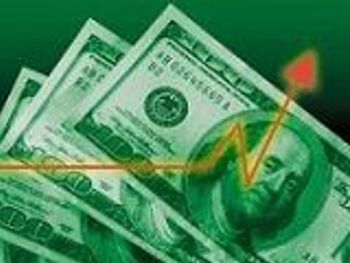
You worked hard for your money. That means you should do everything within the law that allows you to keep more of it. Here's a tax-dodging solution that's ideal for income-seeking investors.

You worked hard for your money. That means you should do everything within the law that allows you to keep more of it. Here's a tax-dodging solution that's ideal for income-seeking investors.

A discussion on the importance of dividend-paying stocks and how a $10,000 investment can make you a millionaire by the time you retire.

Just because your brother-in-law isn't giving you hot Treasury tips, don't think we're not in a bond bubble. We are. Prices will go lower. If you're in a bond fund or ETF, get out while the gettin's good.

Even if you fall on hard times, there are ways you can ensure your family is among the haves if you're motivated enough. And you don't need a ton of money to start.

If you have money in bond funds, sell them while you still can. If you own bond funds, find alternative places to put the money (such as dividend-paying stocks) before the inevitable sell-off occurs.

The key to making money is staying invested (and putting more capital to work) when times are tough. It's not easy to do as each bear market is scary.

Although there is nothing close to a cure for cancer yet, it's a huge business. Here are some companies you can invest in, some conservative picks and others more speculative.

There is great money to be made in biotech if you know what you're doing and can avoid the traps. Following these five rules should give you an advantage over most investors.

A lot of investors are getting are getting scared over the looming dividend tax increase, but they shouldn't be. Here are two dos and three don'ts for a dividend tax hike.

Despite being in one of the top 10 strongest markets in history, investors aren't buying it (figuratively and literally). The argument for betting against the general public and investing right now - As long as there is so much fear out there, the market should go higher.

People mostly vote with their wallets for the candidate perceived to be better for their finances. A quantitative look to see how the market performed under each candidate's party yielded surprising results.

Most of you buy stocks hoping they'll go up and then you sell for a profit. Buy low, sell high … that's what we've been taught. But there are other investors who do the opposite.

Although the two presidential candidates are pretty much tied according to the latest polls, you can see some of the smartest investors on Wall Street are placing their bets on Obama and stocks that will do well if he remains in the White House.

Not everyone is equipped to make the right decisions or handle the pressure of managing their own money. Here are some tips for not getting fleeced by your broker or planner.

When investors look for cheap stocks, they often concentrate on the ratios of price to earnings, price to cash flow, price to book value and price to sales. Those investors often find stocks significantly outperforming the S&P

Even if you're an investor who doesn't want to actively manage your money, don't be lazy and hand it over to a mutual fund manager.

The price has gone up on dividend-paying stocks, but there are foreign companies trading on American exchanges that should satisfy investors.

With quality companies showing low dividend yields, investors are forced to look elsewhere. One area that has been a bit overlooked is foreign dividend payers.

Millions of operations, tests and other health care services will happen regardless of world events, economic, political or otherwise.

After several years of up and down economic data, suddenly it feels like the positive data is starting to stick. See where the U.S. economy seems to be making strides.

Last week the Business Council revealed that CEOs are the most pessimistic they've been in two and a half years. The good news is that the last time they were so pessimistic was just before the market bottomed and went on to double.

Cash flow is a better metric than earnings. Companies with double-digit annual cash flow growth over the past five years outperformed the market by 286% when screened every quarter.

If you own dividend-paying stocks, particularly those that raise their dividends every year, you should be able to beat the inflation rate and protect your purchasing power.

There are a lot of great dividend stocks with healthy yields and years of consecutive dividend increases. This is a great time to load up on quality stocks that will build wealth for tomorrow with below average risk.

Every day, supercomputers - owned by hedge funds - buy and sell millions of shares of stock, and sometimes the holding periods are as short as milliseconds.

Rarely do investors dig a little deeper on the balance sheet and examine things like receivables, payables, and inventory. Even less frequently do they look at the various ratios that go along with those metrics and try to determine what that means for the company.

Even though the market is recovering from the last two weeks, health care companies are still trading at steep discounts and would be worth picking up.

Although the stalled debt talks haven't affected the market much now, there are things you can do to prepare in case the worst should happen so your portfolio will survive.

Silver may have had its day in the sun. It's time to invest in gold and back off of silver, because the latter is more likely to go lower.

Although the financial crisis was tough on almost everyone, it was a good time for biotech investors. This year hasn't been as good.